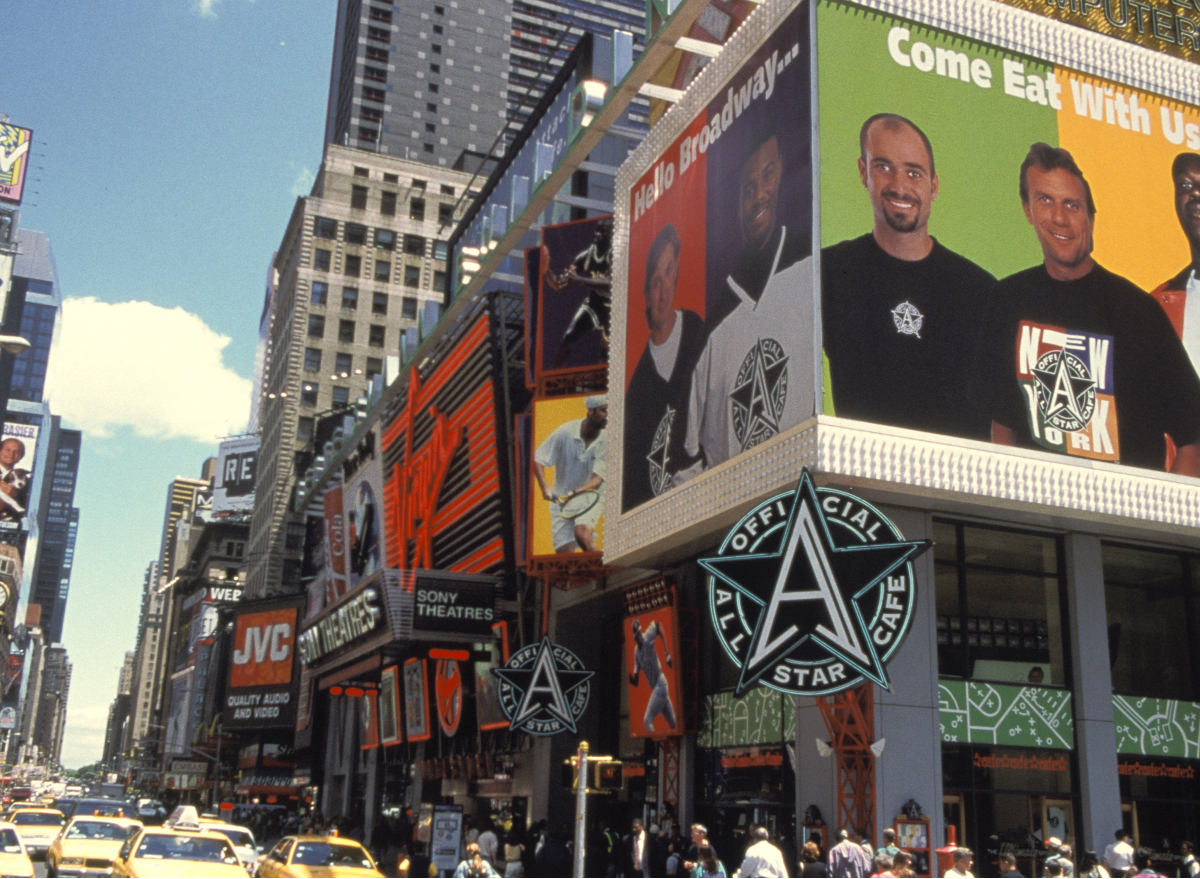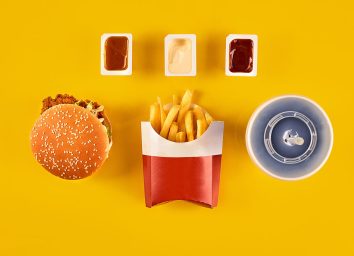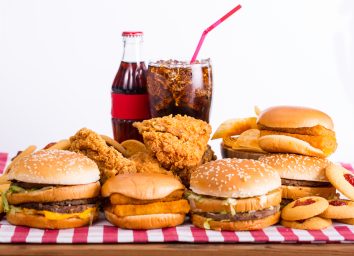7 Once-Popular Fast-Food Chains That Met a Shocking Ending
Fast-food joints are, sometimes, a flash in the pan–pun intended. While the staples (read: McDonald's, Burger King, Five Guys, and the like) feel fairly indestructible and consistent, not all burger and fry chains are built to last. In fact, some end up meeting a surprising or tragic ending, no matter their size.
Here are several restaurant brands that were once huge but ended up falling from grace and disappearing.
For more fast-food news, check out 8 Worst Fast-Food Burgers to Stay Away From Right Now.
Chi-Chi's
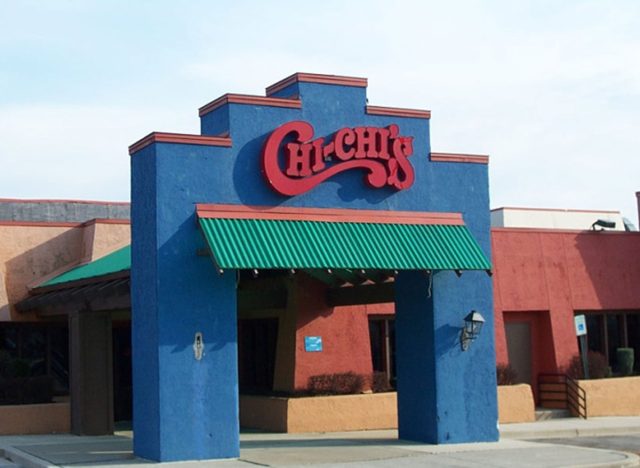
Poor Chi-Chi's. The brand started out in the '70s and was a success story for a while, taking its signature Tex Mex fast food across the United States and Europe. But by 2003, the chain had run up against financial trouble. Chi-Chi's filed for bankruptcy that same year, and then things really took a turn for the worse.
A Chi-Chi's location in a Pennsylvania mall was at the center of the largest Hepatitis A outbreak the United States had ever seen: over 650 cases were linked to the location.
The chain ended up paying out $40 million as settlements for the victims of the outbreak and ended up closing up shop in the American and Canadian markets as a result.
All Star Café
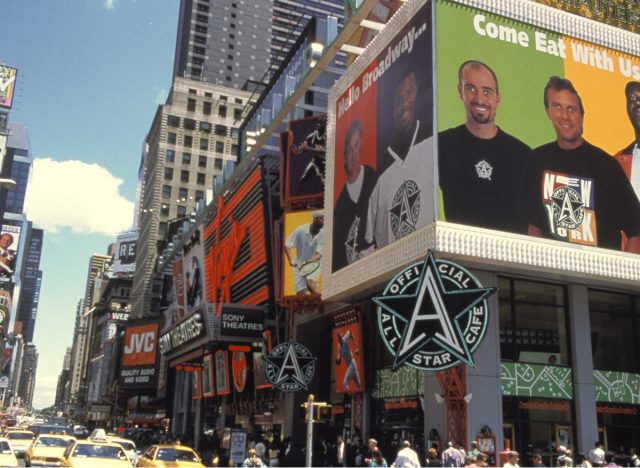
You surely remember the All Star Café, given the amount of marketing and star-power attached to promoting it. Wayne Gretzky, Joe Montana, Shaquille O'Neal, and Andre Agassi all ended up investing in the chain of sports-themed restaurants serving "stadium cuisine."
All Star Café opened up in prime locations across America, from Times Square to Disney World. But even with all its famous, on-brand investors, the chain couldn't survive the waning interest in themed restaurants. In 2007, it closed its final location.
Wag's
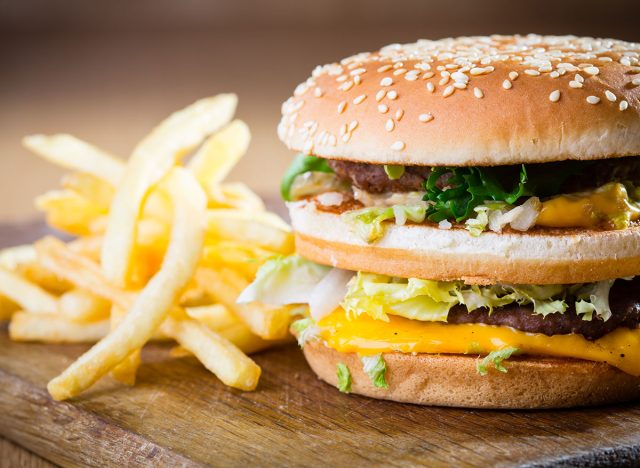
In the '70s and '80s, Wag's was a fast-food restaurant chain founded by Walgreens and modeled after 24-hour diners serving inexpensive burgers and breakfast options. But by 1988, Walgreens sold off all 90-something locations of the chain and turmoil ensued for the brand. Wag's was out of business by 1991 but some of its locations still operate as restaurants—under the IHOP brand.
White Tower
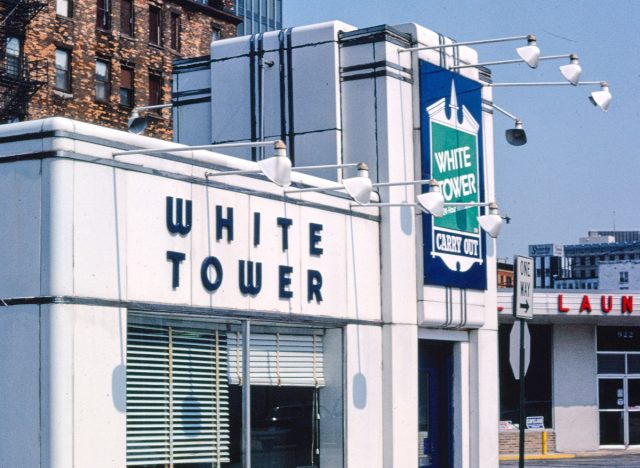
This back-in-the-day chain stirred up quite the drama during its lifetime. Founded in Stamford, Conn. in 1926, the White Tower was quickly accused of shamelessly imitating another well-known competitor: White Castle. From its white fortress-like buildings to its menu, White Tower certainly wasn't trying to hide its inspiration.
And while its beef with White Castle led it in and out of court, this wasn't actually what brought the chain down. White Tower's demise came due to its real estate—its restaurants were mostly located on Downtown city streets, with little car access and zero parking. A bad move in a car-obsessed America that came to value the drive-in more and more.
Most White Tower restaurants eventually went out of business, save for one remaining location that still stands in Toldeo, Ohio.
Lum's
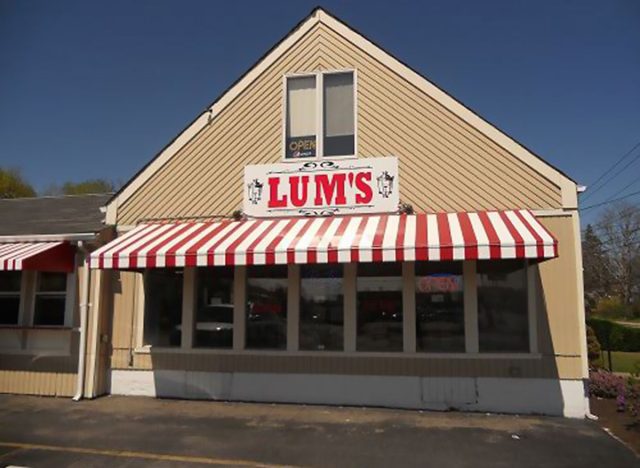
It's surprising that something with such a unique concept couldn't stick it out. The brand, which was founded in 1956 and at one point had 450 locations, was known for steaming its hot dogs in beer. Genius, considering hot dogs and beer already pair so well. But unfortunately, even that offbeat cooking tactic wasn't enough to keep them from liquifying their assets in 1982.
Sambo's
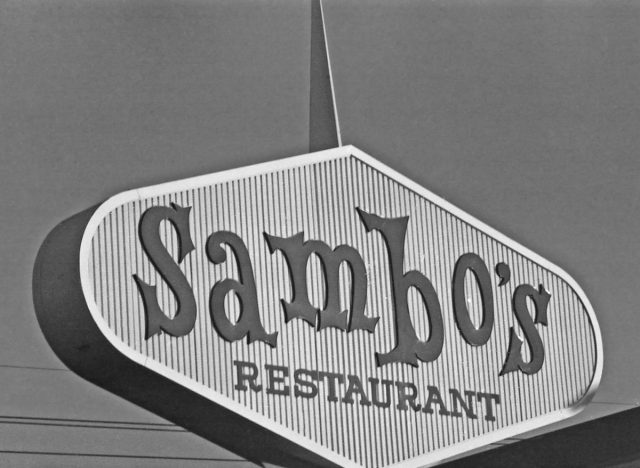
Sambo's fell from grace in 1982, when it went bankrupt despite having as many as 1,117 locations. The last location hung on until 2020, when it changed its name in the midst of George Floyd protests. "Sambo" is a racist term for people of African descent, so it is definitely for the better that the last of the chain's locations have either closed or changed that major detail.
Pumper Nic
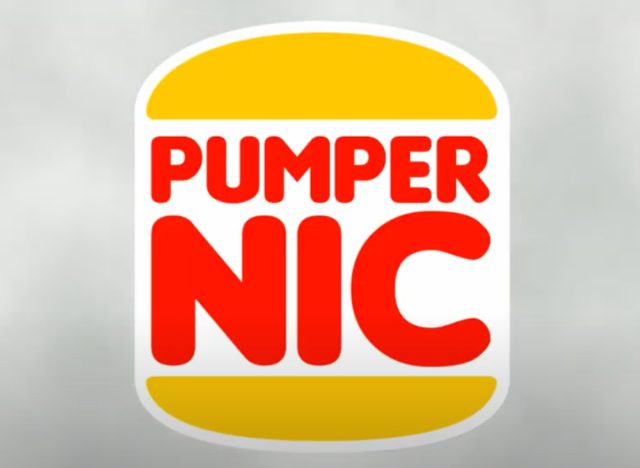
While White Tower came under fire for all-around imitating the concept of White Castle, Pumper Nic was in hot water its logo. Undeniably reminiscent of Burger King's, the Argentinian brand went through a legal battle with the King of burgers before ultimately going bankrupt in 1999.
